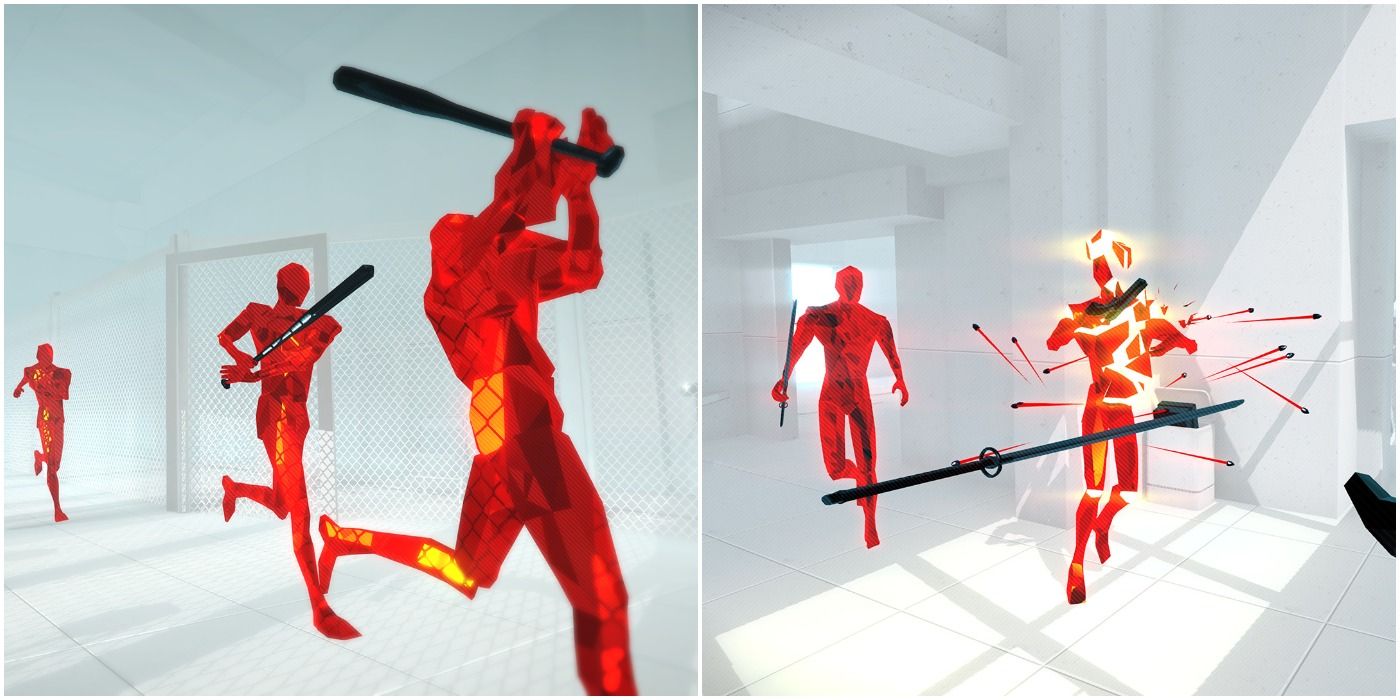
The original Superhot game was a breath of fresh air in the first-person shooter and puzzle genre, owing to its unique gameplay style that forced players to slow down rather than move at breakneck speed while also employing some truly unique, polygonal visuals at the time. Superhot became so successful that it spawned two spin-offs in quick succession, the most recent being Mind Control Delete.
Related: 10 Co-Op Games For Gamers That Love Puzzles
While many aspects of gameplay return from the original title, Mind Control Delete takes gameplay in a somewhat different direction to its predecessor, allowing for more creative freedom by both the developers who made it and the player who tackle its challenging combat.
10 It's A Roguelike
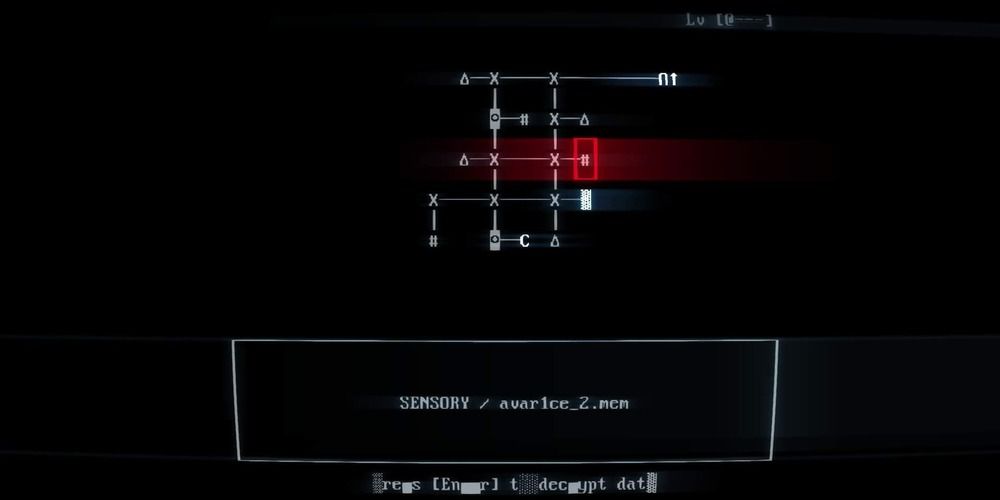
The biggest change from the original Superhot, and one that may turn away people who are interested in the spin-off, is the fact that it changes from a first-person puzzle shooter to a first-person roguelike, with the aim of the game being to clear as many levels as possible before the player's inevitable death. The roguelike nature, while interesting, is also catered to people who played and mastered the first title, with many of the later levels in Mind Control Delete pushing players to the absolute limit to prevent themselves from dying.
9 The Player Has More Weapons
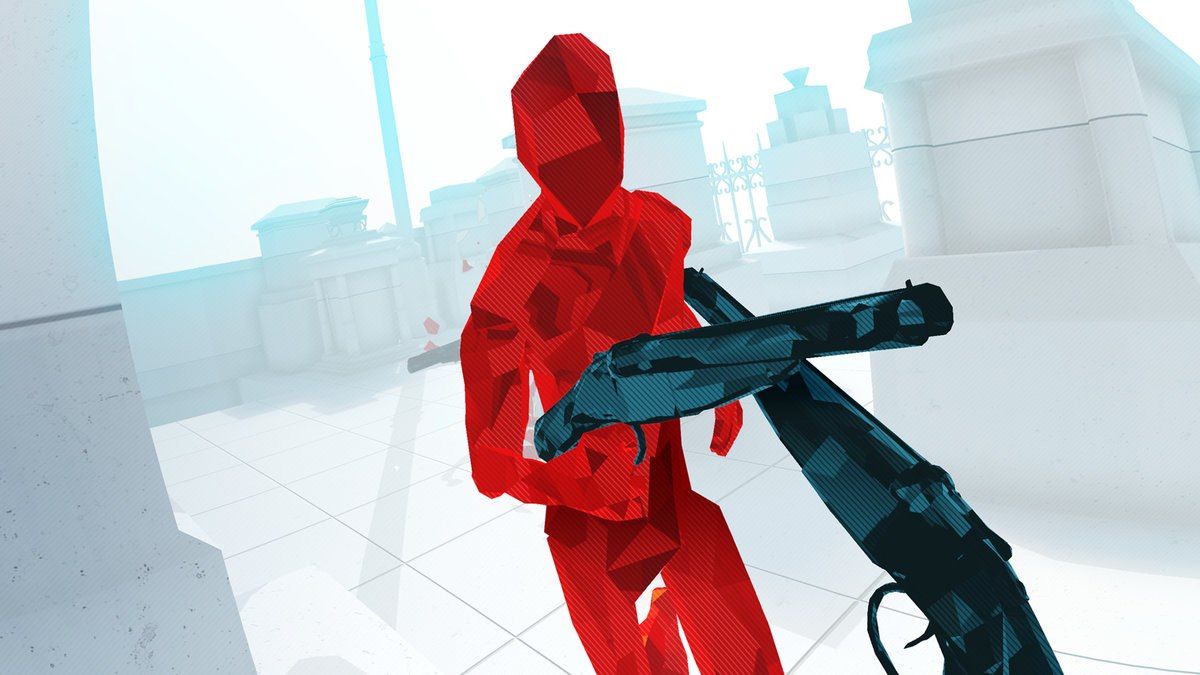
One of the new additions in Mind Control Delete is the many new weapons available to the player. Originally, Superhot had a handful of weapons, including several melee weapons, a pistol, shotgun, and rifle that the player had at their disposal. Mind Control Delete not only adds new firearms but also a large number of melee weapons as well, including throwable knives and even a small fork that can be thrown at enemy's heads.
8 The Life System
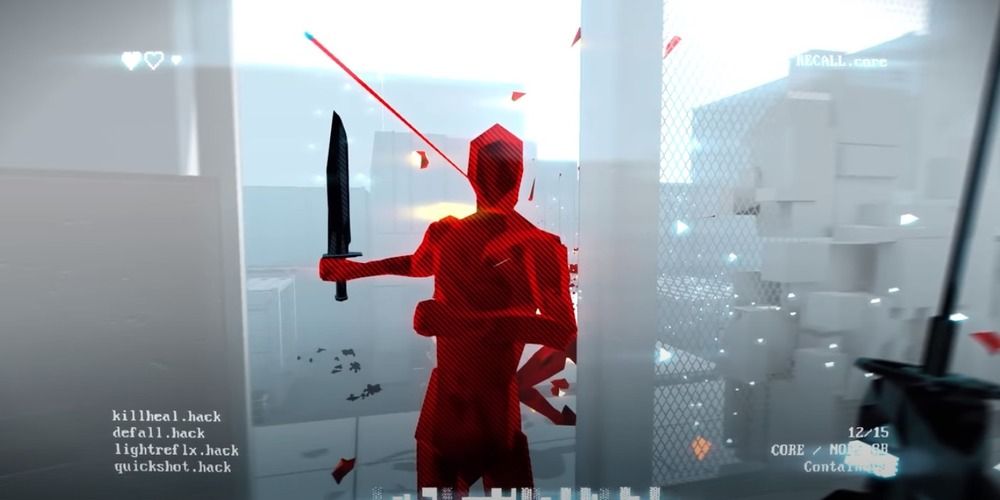
Aside from the newly available weapons, another big change from the original title is the addition of a life system. In Superhot, the player would automatically fail the level if they were hit by a projectile or melee attack, but in Mind Control Delete, they are given three chances to clear a level before their run is over.
Related: The 10 Best First Person Shooter Games (According To Metacritic)
Without this life system, it's easy to see how runs could abruptly end at a moment's notice due to the player previously dying in only one hit, so it is a welcome addition to the game that compliments the genre shift nicely.
7 More Enemies To Defeat
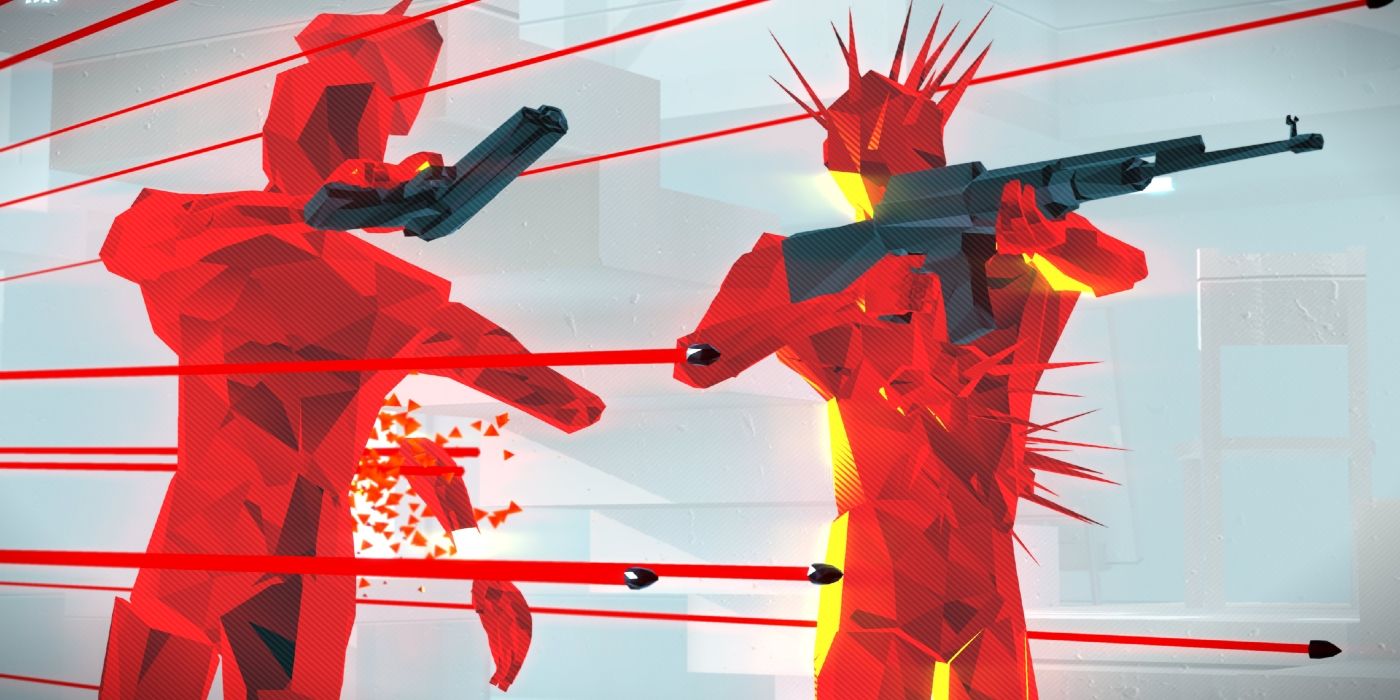
Alongside new weapons and levels, the player also has to contend with new enemies that require different tactics to defeat. While the original game had the standard red enemies that return in Mind Control Delete, the spin-off adds enemies that need to be hit in a specific body part to be defeated, as well as spiked enemies that are incredibly dangerous and will explode when killed, meaning the player needs to always be wary if trying to clear a level using only melee weapons.
6 There Is Less Of A Story
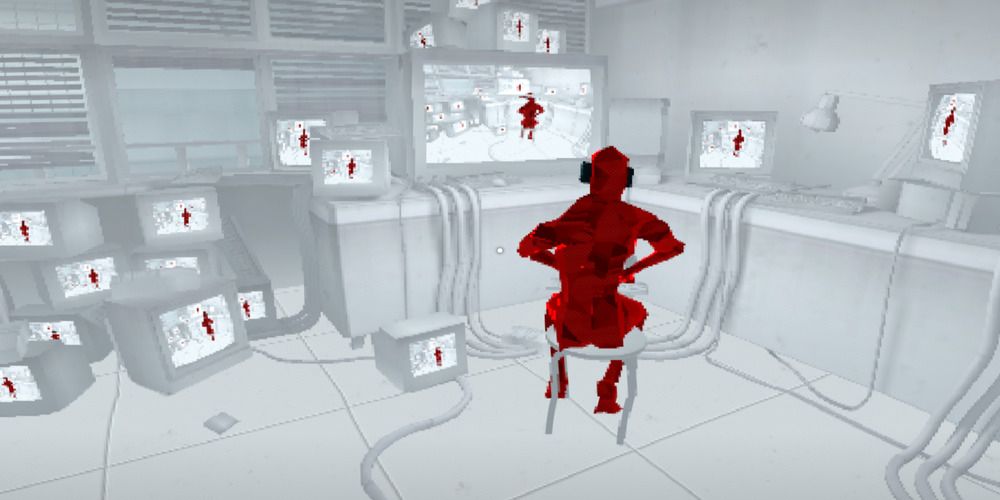
Unlike the original Superhot, Mind Control Delete's story is quite barebones and only really covers the initial dive into the spin-off game itself. While this allows for more freedom for the player and having fewer instances where the player is forced into a long corridor, such as those seen in the original game, it also means that the experience is almost solely gameplay-based. However, the terminals from the original Superhot do make a return in Mind Control Delete that add some lore and backstory and are just as hard to find as in the original game.
5 Hacks Add More Gameplay Options
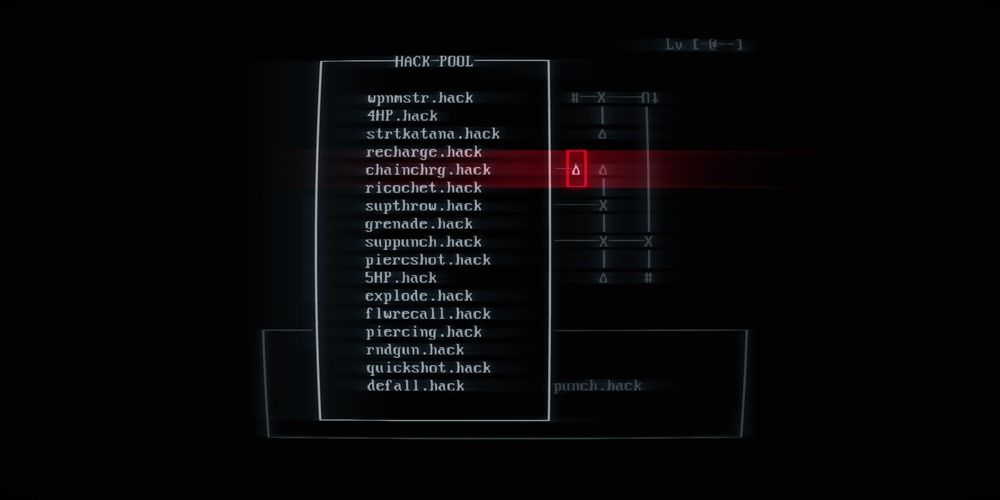
As a roguelike, Mind Control Delete doesn't just randomize the levels that players have to complete, it also adds a new mechanic called Hacks. These upgrades can be encountered sporadically between levels and add a new layer to combat that will help in dealing with the many new enemies and, on occasion, the limited available weapons. These upgrades include granting the player more bullets in every gun, increasing their movement speed, as well as several unlockable and much more powerful Hacks with various effects.
4 Cores Add Even More Gameplay Options
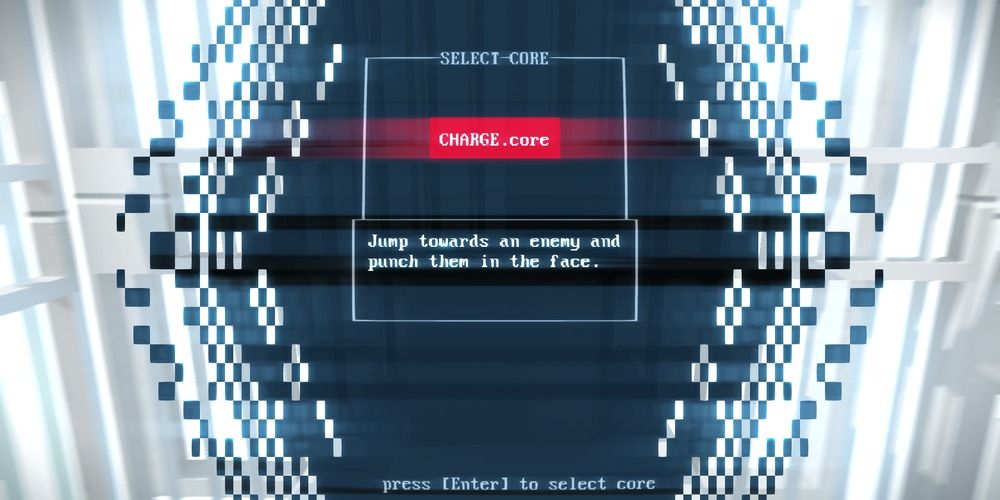
Another roguelike element added in Mind Control Delete are the six unlockable Cores that can be found throughout the game. These Cores act in a similar way to Hacks, though they are equipped at the start of every run and are permanently unlocked once they have been found. While the effects aren't as powerful, they do add an element of customization to the game that wasn't present in the original.
Related: The 10 Best Roguelike RPGs, Ranked
Some of these Cores, such as the Pure Core, also make the game more difficult if the player is finding gameplay too easy, while others, such as the More Core that is obtained right at the beginning of the game, can make the game easier for those who are struggling.
3 Hotswitch Isn't A Permanent Ability
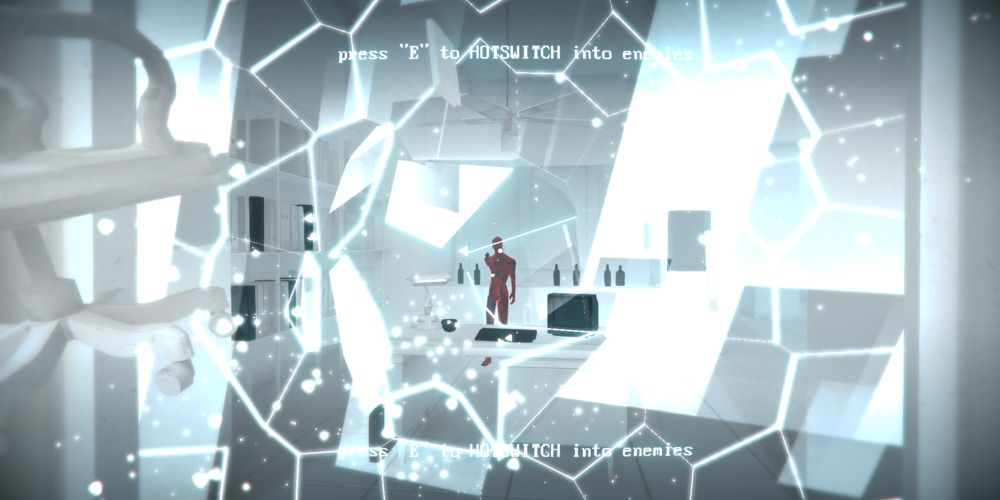
One of the more interesting aspects of combat in the original Superhot was the Hotswitch ability, which allowed the player to take over the body of an enemy in an instant and gain a tactical advantage, though at the cost of whatever weapon they were holding at the time. While Hotswitch does come back for Mind Control Delete, it is limited to a Core ability and needs to be equipped in order to be used.
2 Enemy Layouts Aren't Predetermined
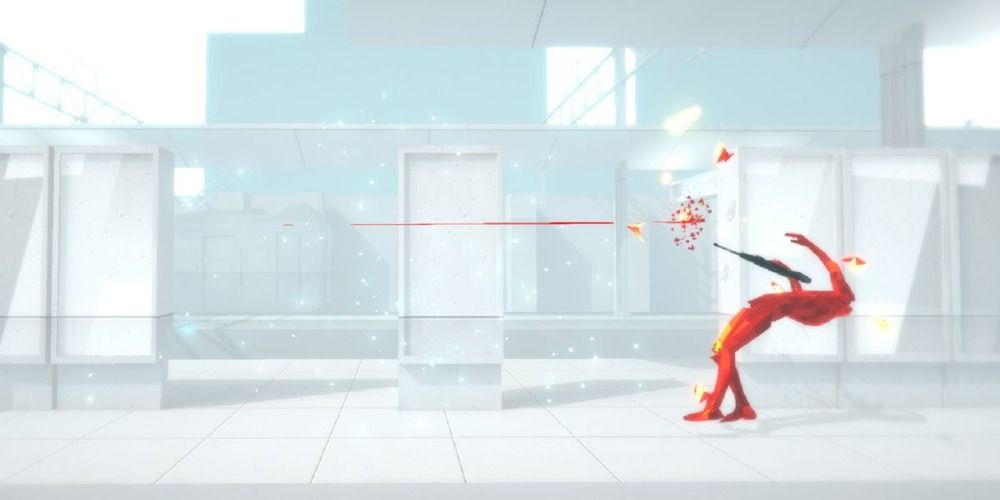
One of the reasons why Mind Control Delete is much harder than its predecessor is the fact that, despite levels being reused frequently, enemy placements in those levels aren't predetermined. Learning where an enemy was going to come from was a core aspect of the original Superhot, but Mind Control Delete chooses to focus much more on the combat side of gameplay rather than the puzzle elements.
1 The Meta Narrative Isn't As Prevalent
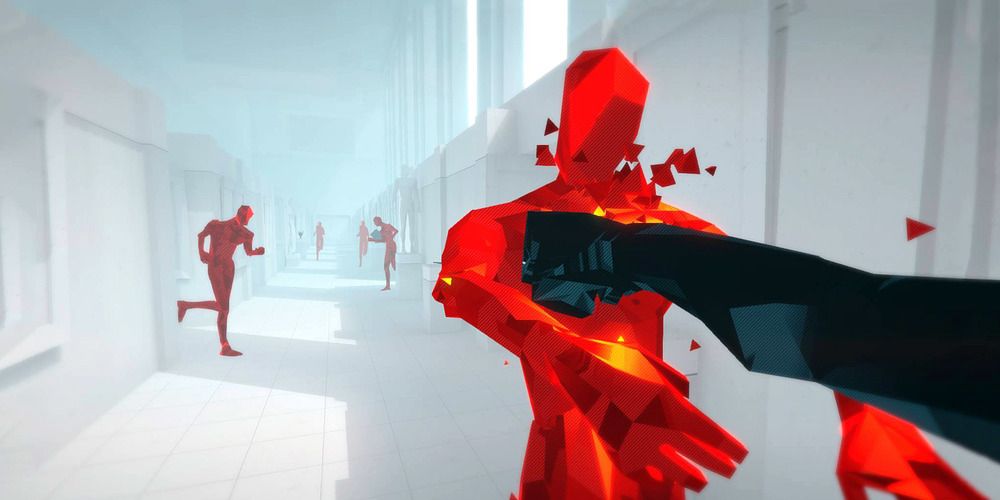
One of the big draws to the original Superhot was the fact that its narrative was aimed squarely at gamers and their obsession with certain titles. This meta-narrative is somewhat present in the opening sequence of the game, with the player demanding more from the original title, it quickly disappears once the gameplay opens up and makes the story one of the weakest aspects of Mind Control Delete, unlike the original Superhot.

